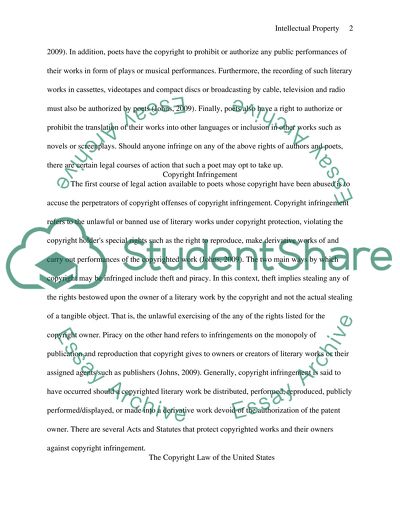Intellectual Property Paper Essay Example | Topics and Well Written Essays - 750 words. Retrieved from https://studentshare.org/law/1441308-mgm
Intellectual Property Paper Essay Example | Topics and Well Written Essays - 750 Words. https://studentshare.org/law/1441308-mgm.


